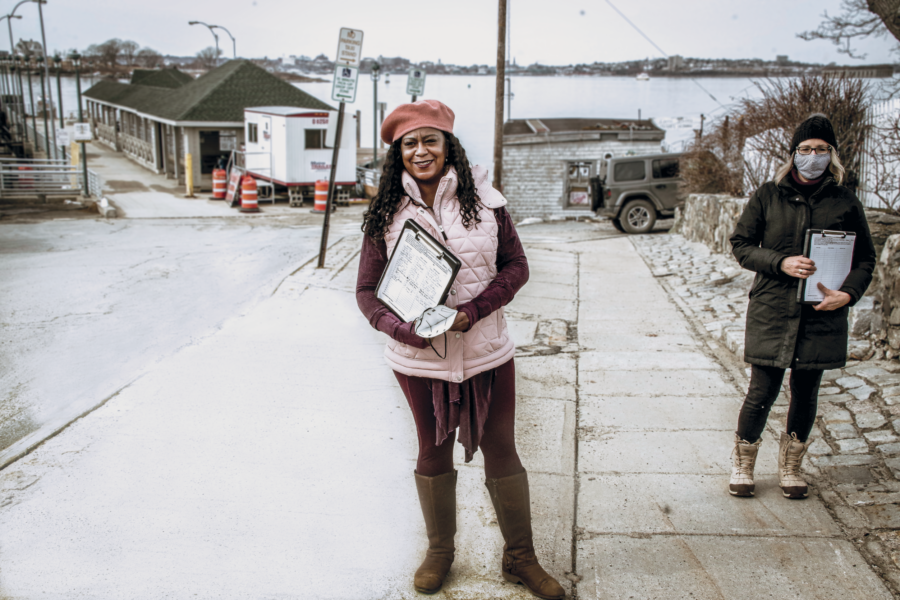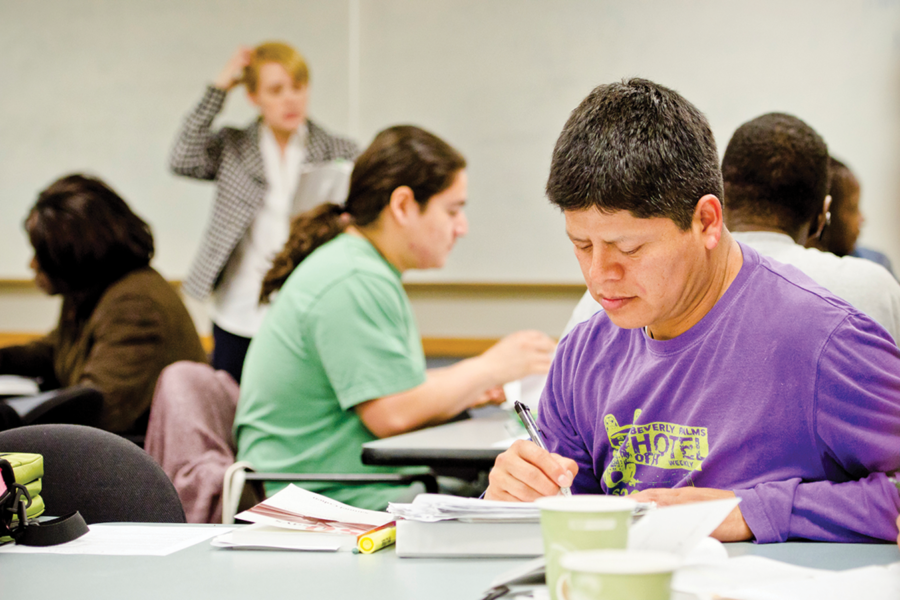
I hoped we would be together today to send you off from Yellow Springs one last time.
I hoped that things would be so different by now.
THAT’s today’s theme. HOPE.
It would be an understatement to say there have been moments these past few years when I have felt hopeless.
From the devastating impact of racism unfolding across the streets in every city, county, and country;
To the existential threat of climate change as we watched interstates flood and towns burn;
From the senseless individualism that is killing thousands daily in what is now a largely preventable plague;
To conspiracy-inspired fictions fueling a fundamental breakdown of our systems of government and community;
It’s overwhelming.
Our standard refrain, “What Would Horace Do?” feels very Antiochian but woefully inadequate and outdated.
We need something bold and audacious. Radical hope.
My current journey into radical hope began with Dread.
Seriously. David Theo Goldberg’s new book, Dread: Facing Futureless Futures, set me on a three-month journey looking for hope in all the right places.
Here’s what I’ve learned.
First, as a topic of study, there are all kinds of hope—anticipatory and subversive, social and critical hope, good and bad hope, simple and complex hope. Anthropologists talk of ‘spaces of hope,’ linguists of ‘vocabularies of hope.’ Philosophers, theologians, educators, psychologists—all have unique ways to look at hope. And then there’s artists and poets.
Feminist poet and activist Adrienne Rich wrote,
“What would it mean to live in a city whose people were changing each other’s despair into hope? What would it mean to be on the last page of the end of despair?”
So, what am I talking about?
Most of the time we think of hope in a privatized way.
Like, “I hope I win the lottery,” which is unlikely, improbable and all about me. Like, “I had hoped we would be together today.”
But IF all those who can choose not to get vaccinated or wear masks, we won’t be together no matter how much I hope for it.
The problem is that if hope only dwells in this personal space, it removes all responsibilities from the larger society.
We can hope all day for health care for all, a basic living wage, a level-playing field no matter one’s zip code … you get where
I’m going.
Detaching hope from the wider world let’s those who hold power off the hook, and depresses those without a chance, not a hope in the world.
So, if it’s not just wishful thinking, what is it?
Hope is the precondition for individual action AND the inspiration for social struggle.
I remember when the Rev. Jesse Jackson called out to the rainbow coalition to “Keep Hope Alive” by recognizing “our capacity to act and unite for the greater good” by using “hope and imagination as weapons of survival and progress.”
Keep hope alive. Keep on dreaming. Keep on fighting.
Twenty years later President Obama campaigned on hope, drawing from his memoir The Audacity of Hope about ‘reclaiming the American dream.’
We thought we had made real progress.
In some ways we did. But there were limits to the audaciousness and promises not met.
And now we’ve hit despair.
Something is so terribly wrong in America.
Here, in one of the richest countries in the world, millions are unhoused and malnourished, cramming into no-longer hidden nooks on every street corner across the land.
We’re seeing attacks on voting rights to disenfranchise the young, those of color, progressives, that new majority, by any unconstitutional means necessary.
And, that basic woman’s right to choose that I thought we had won decades ago is again fighting for its life. Our lives.
Prochoice IS Prolife.
I could go on but that will only get me too depressed.
And that’s where radical hope comes in.
First, radical hope is the match up to radical evil.
One of my favorite philosophers, Hannah Arendt, in her brilliant post-mortem on World War II and the reckoning with totalitarianism said that it was precisely because the world had descended to those depths that led to new possibilities so that we would never allow ourselves to return to that abyss again.
Basically, the immensity of the issues leads to a radical hope with its strength to face the future. That “Never Again” or that “Build Back Better” are calls to action – we will rise whenever it seems most impossible. Even in the darkest times many choose to act . . . and speak and write.
Radical hope motivates radical actions to make the world freer, more equal, more democratic, more livable.
Radical hope is more than a personal mood or private feeling, it is the basis of collective social and political action. It is the WE as in WE shall overcome, it is the WE as in WE the people, and it is the WE in WE are in this together.
Radical hope is ‘aimed’ hope, directed to what some might consider utopian futures based on an understanding of the past and a critical awareness of the present.
The notion of looking back to embolden action can be a bit tricky, of course.
It is not about getting stuck in some glorified past.
Nor is it about creating narratives of nostalgia that are merely dog whistles for patriarchy and White supremacy, like “Make America Great Again.”
So, what does radical hope have to do with education and Antioch?
Paulo Friere, Brazilian educator and activist tells us, “We need critical hope the way a fish needs unpolluted water.”
I LOVE that.
Basically, we can’t live without it. We cannot improve the world. We cannot so much as start the struggle for justice without hope.
Friere and others conceptualize one of the tasks of progressive education is to unveil opportunities for students to hope and act, no matter what the obstacles may be.
It’s something called pedagogies of hope.
Progressive educators prepare learners to navigate uncertain futures with hope with a range of strategies to empower agency, to examine evidence without despair, to create robust experiential learning inside and outside classrooms and much more.
Much of what is written in terms of pedagogies of hope focuses on K-12 and undergraduate education.
When I think about our doctoral program, I think radical hope is embedded in its every fiber. Think of the degree name. It is about connecting the scholarship of leading—that’s the activism—with the practice of change—that’s the potentiality—not as a private afterthought but as a path to research alternatives in a time of profound despair, to reclaim justice and work toward—in one’s scholarship and in one’s practice—organizations and communities in which equality, equity and inclusion flourish.
Students don’t enroll in this program simply because they hope to get a PhD, in other words, privatized hope. There are literally thousands of doctoral programs to choose from. They come because they want to make a difference. It is the powerful call of Antioch’s mission to ‘further social, economic, and environmental justice.’
You don’t do that alone. Remember, radical hope is about agency with others. It is about inspired collective action.
One of the program’s essential features is the importance of the learning community. There is something powerful about finding one’s best self within a community, a rainbow community like ours.
In fact, not only does that belief in cohort peer learning improve our graduation rates, which are WELL above the national average, it also builds a spirited, bold fellowship of kindred spirits with diverse experiences and unique lives committed to futures of justice.
One of our program’s stated goals is to teach and train our students to be public intellectuals for the common good. I want to rephrase it, “To teach and train our students to make noise for hope.” Imaginative noise. Subversive noise. Antioch kinda’ noise. Rebecca Solnit, one of my favorite social commentators, says “Hope is not a lottery ticket you can sit on the sofa and clutch, feeling lucky. It is the axe you break down doors with in an emergency.”
Name the emergency—Climate change. Pandemic.
Authoritarianism. Racism. Name it.
So, here’s my last words to you today, my dear radically hopeful graduates.
You have a special responsibility as Antiochians to ‘speak for hope,’ to ‘win those victories for humanity.’
Reinsert hope into public discourse, organizational meetings, classroom conversations.
Speak out with your passion for justice. That’s what Horace would do.
(Laurien Alexandre, PhD is the Dean of Antioch’s Graduate School of Leadership and Change and Special Advisor to the Chancellor. This essay is an excerpt of the speech she gave at that School’s 2021 Commencement.)


